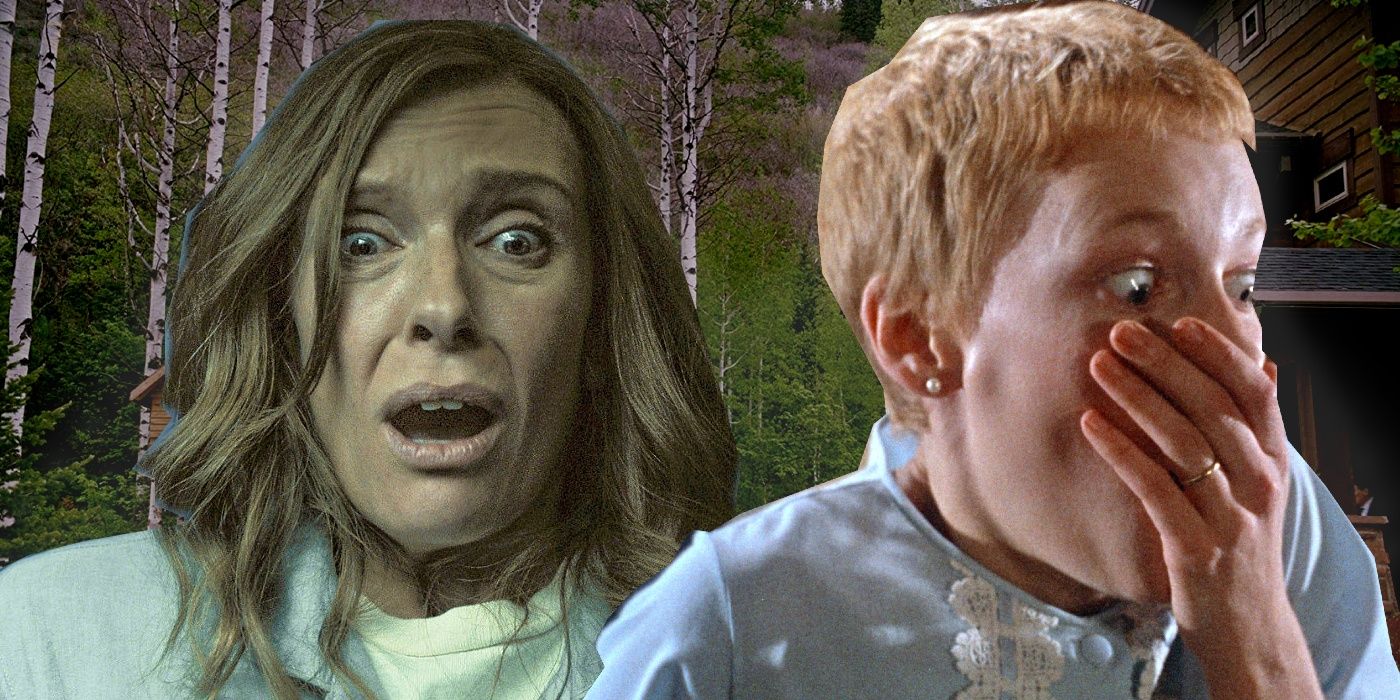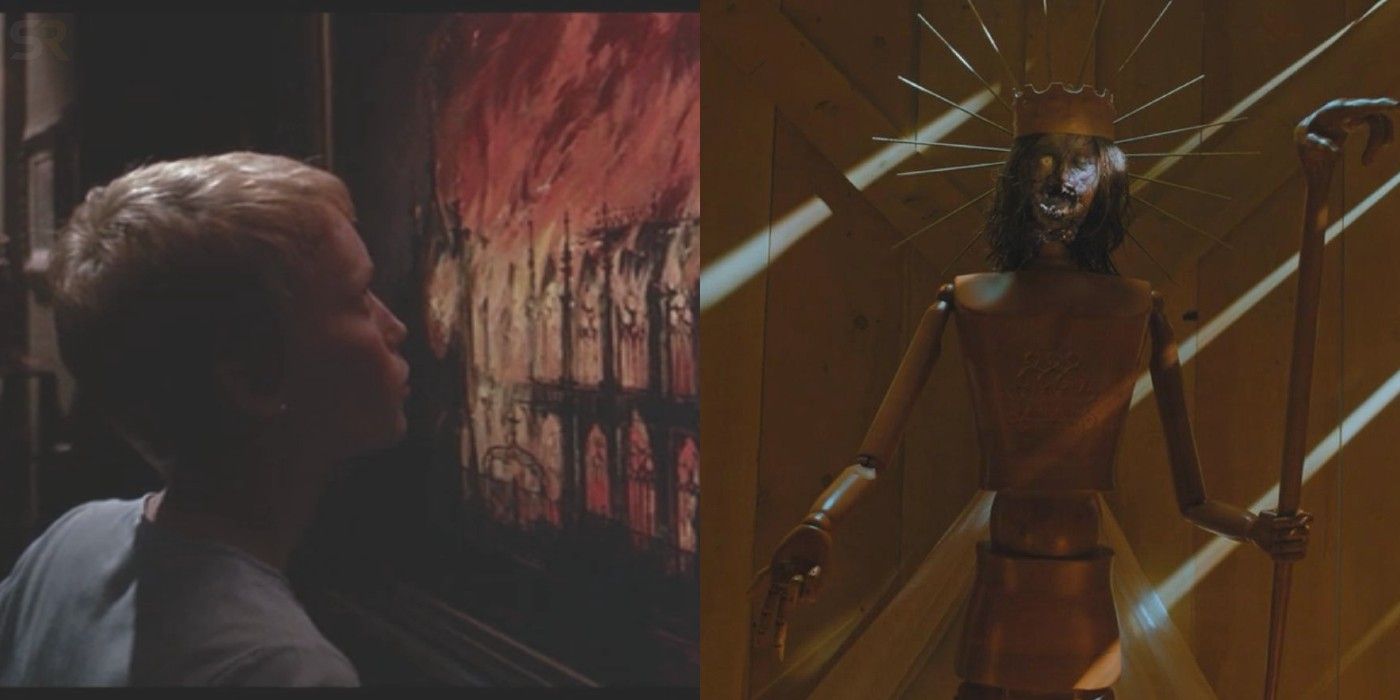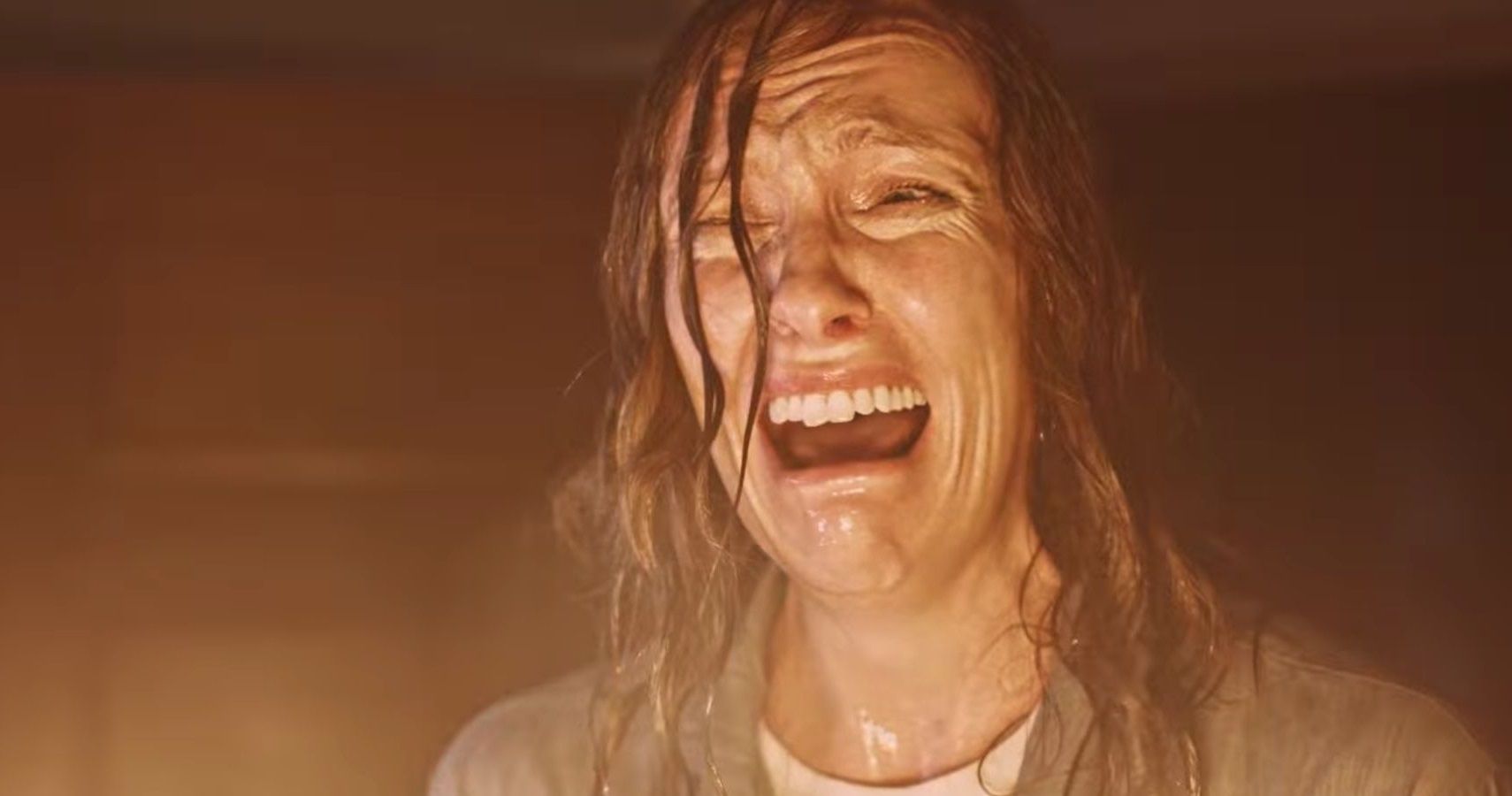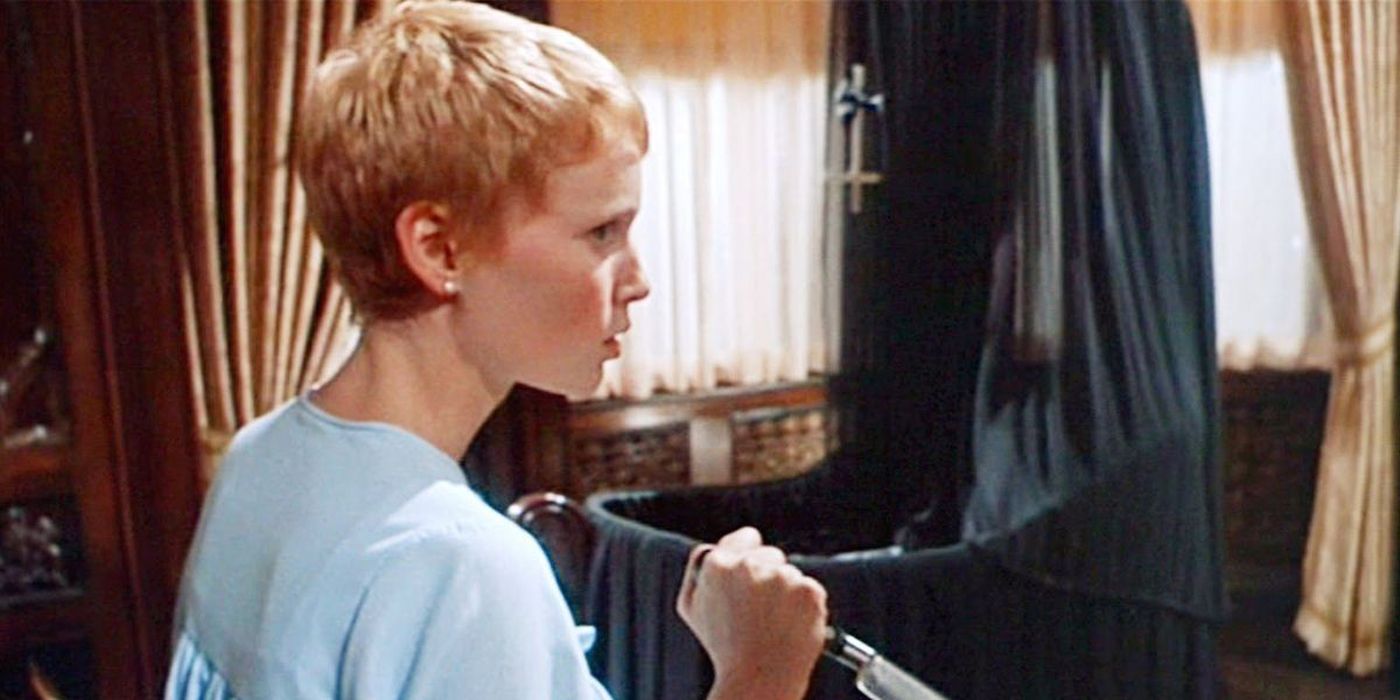
Although Hereditary and Rosemary’s Baby seem functionally different on a plot and character level, they share many emotional beats, with Hereditary a modern equivalent of the fears expressed in Rosemary’s Baby.
1968’s Rosemary’s Baby follows a young couple’s move to New York. Guy (John Cassavetes) is trying to make it in the acting world while Rosemary (Mia Farrow) fends off nosy neighbors and the feeling that something around her is going wrong. It is a movie that relies on creeping dread, asking audiences to sympathize with a pregnant Rosemary as she delves into the shadowy secrets of a demonic cult.
Hereditary was Ari Aster’s 2018 directorial debut. It follows the story of a family torn apart by tragedy that. Mother Annie (Toni Collette) turns to the occult in an attempt to cope with her grief over the loss of her daughter while son Peter (Alex Wolff) finds himself intertwined with the supernatural.

The cinematography of both movies develop fear organically, in the characters and the audience. Despite the presence of demonic cults, they are not edge of your seat thrillers that rely on jump scares. Instead, the horror is mostly conceptual, the deep-seated fear of invasion, of things not being what they seem. The cults in these movies use the characters to bring about their own designs. Rosemary is impregnated by Satan, while Annie and Peter are manipulated to bring about the rise of Paemon.
In Rosemary’s Baby, the cult represents a fear spawned from the increasing urbanization of the 1960s. As more and more Americans moved from small-town rural settings to bustling cities, it became more difficult to trust the people who surrounded them. It also plays on fears around the women’s liberation movement. The demonic cult literally forces Rosemary into the role of pregnant housewife while also highlighting the ethical issues around marital rape (which was still legal when the movie came out).
Hereditary plays on similar contemporary fears around “unknowing”, its focus on familial detachment. Although the film doesn’t broach on social media specifically, it does reflect fears that spawn from the advent of technology. The family is physically close, but emotionally distant. It is in this setting that the demonic cult is able to operate, capitulating on these fears. The cult also represents an era of falsified information. It lies to get what it wants from the family, tricking Annie into summoning Charlie (Milly Shapiro) while acting the reliable source. It is far too late when the source’s unreliability is discovered in the film's ending.

Hereditary has one of the most genuinely shocking first act twists in modern-day horror. Though Charlie is initially posed as the stereotypical “creepy child” trope, the movie inverts expectations, reframing her as a victim. While Hereditary is more graphic than Rosemary’s Baby, it doesn’t rely on cheap thrills. Much of the horror comes from the dread of knowing what’s coming; the audience is already disturbed before a gory scene hits the screen.
The acting and directing in Hereditary humanizes the characters. As Annie shrieks when she discovers Charlie, the camera stays on Peter’s traumatized stare, opting to focus on the human rather than graphic element. Hereditary uses foreshadowing extremely effectively. The twists work because they don’t actually come out of nowhere, they are just seeded delicately so audiences don’t catch what’s going to happen until it’s too late.

Production designer of Rosemary’s Baby, Richard Sylbert, once called the film “the greatest horror film without any horror in it.” The movie is a part of cinematic history, providing a template for horror where dread is the visual language. It was added to the National Film Registry in 2014 for representing a “crucial element of American creativity, culture and history.” Although it explores fears of its time, many of the themes in Rosemary’s Baby are universal, some pertinent to today: the fear of bodily invasion, a fear of evil contagion.
from ScreenRant - Feed https://ift.tt/2y2ah9K
via IFTTT







0 comments:
Post a Comment